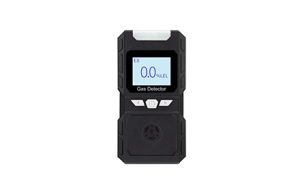Here are some general safety precautions and guidelines for using hydrogen sulfide gas detection:
1. Ventilation: Always work in well-ventilated areas. Hydrogen sulfide is heavier than air and can accumulate in low-lying or enclosed spaces, leading to a higher risk of exposure.
2. Use Proper Equipment: Employ gas detection devices specifically designed for hydrogen sulfide. Ensure these devices are regularly calibrated and maintained for accurate readings.
3. Personal Protective Equipment (PPE): Wear appropriate PPE, such as gloves, goggles, and a respirator or mask with a suitable filtration system, to prevent inhalation or contact with the gas.
4. Testing Procedures: Follow established protocols for gas testing. Before entry into confined spaces or potentially hazardous areas, ensure thorough testing for hydrogen sulfide levels.
5. Emergency Procedures: Establish and communicate emergency procedures in case of exposure or elevated gas levels. This includes evacuation protocols, first aid measures, and access to medical assistance.
6. Training and Awareness: Ensure all personnel involved are adequately trained in gas detection, safety procedures, and the hazards associated with hydrogen sulfide exposure.
7. Monitoring: Continuously monitor hydrogen sulfide levels during operations in areas where the gas may be present. Be vigilant for any sudden changes in concentrations.
8. Secure Storage and Handling: Store hydrogen sulfide gas cylinders securely and follow proper handling procedures to prevent leaks or accidental releases.
9. Risk Assessment: Conduct a thorough risk assessment before working in environments where hydrogen sulfide may be present. Identify potential sources and take preventive measures.
10. Regulatory Compliance: Adhere to relevant safety regulations, standards, and guidelines set by local, national, or international governing bodies regarding the use and handling of hydrogen sulfide.
Remember, hydrogen sulfide is highly toxic and can be fatal at high concentrations. Adhering to these safety precautions is crucial to minimize the risks associated with its detection and handling.


Please contact us for free quotation by form below. We promise the quickest response within 24 hours: